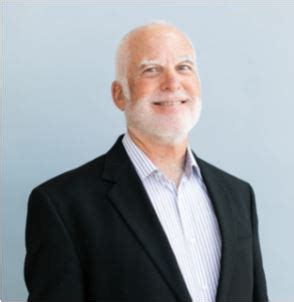A Quote by William Saroyan
I am interested in madness. I believe it is the biggest thing in the human race, and the most constant. How do you take away from a man his madness without also taking away his identity? Are we sure it is desirable for a man's spirit not to be at war with itself, or that it is better to be serene and ready to go to dinner than to be excited and unwilling to stop for a cup of coffee, even?
Related Quotes
It is madness. And if you don't know who you are, or if your real self has drifted away from you with the undertow, madness at least gives you an identity. It's the same with self-loathing. You're probably just normal and normal-looking but that's not a real identity, not the way ugliness is. Normality, just accepting that you're probably normal-looking, lacks the force field of self-disgust. If you don't know who you are, madness gives you something to believe in.
A good soldier is a blind, heartless, soulless, murderous machine. He is not a man. His is not a brute, for brutes kill only in self defense. All that is human in him, all that is divine in him, all that constitutes the man has been sworn away when he took the enlistment roll. His mind, his conscience, aye, his very soul, are in the keeping of his officer. No man can fall lower than a soldier-it is a depth beneath which we cannot go.
There is also a third kind of madness, which is possession by the Muses, enters into a delicate and virgin soul, and there inspiring frenzy, awakens lyric... But he, who, not being inspired and having no touch of madness in his soul, comes to the door and thinks he will get into the temple by the help of art - he, I say, and his poetry are not admitted; the sane man is nowhere at all when he enters into rivalry with the madman.
The disappointed man turns his thoughts toward a state of existence where his wiser desires may be fixed with the certainty of faith; the successful man feels that the objects which he has ardently pursued fail to satisfy the cravings of an immortal spirit; the wicked man turneth away from his wickedness, that he may save his soul alive.
You know how much I admire Che Guevara. In fact, I believe that the man was not only an intellectual but also the most complete human being of our age: as a fighter and as a man, as a
theoretician who was able to further the cause of revolution by drawing his theories from his personal experience in battle.
It is, indeed, a fact that, in the midst of society and sociability every evil inclination has to place itself under such great restraint, don so many masks, lay itself so often on the procrustean bed of virtue, that one could well speak of a martyrdom of the evil man. In solitude all this falls away. He who is evil is at his most evil in solitude: which is where he is at his best - and thus to the eye of him who sees everywhere only a spectacle also at his most beautiful.
Take away material prosperity; take away emotional highs; take away miracles and healing; take away fellowship with other believers; take away church; take away all opportunity for service; take away assurance of salvation; take away the peace and joy of the Holy Spirit... Yes! Take it all, all, far, far away. And what is left? Tragically, for many believers there would be nothing left. For does our faith really go that deep? Or do we, in the final analysis, have a cross-less Christianity?
In the Renaissance, madness was present everywhere and mingled with every experience by its images or its dangers. During the classical period, madness was shown, but on the other side of bars; if present, it was at a distance, under the eyes of a reason that no longer felt any relation to it and that would not compromise itself by too close a resemblance. Madness had become a thing to look at: no longer a monster inside oneself, but an animal with strange mechanisms, a bestiality from which man had long since been suppressed.
If a man wants you, nothing can keep him away,If he doesn't want you, nothing can make him stay. Stop making excuses for a man and his behavior. Stop trying to change yourself for a relationship that's not meant to be.
Slower is better. Never live your life for a man before you find what makes you truly happy..!






































